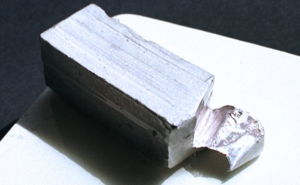Originally Posted By: aquariuscsm
What role does iodine play in all of this?
It saves your car from thyroid problems during excessive moisture ingestion.
Originally Posted By: Merkava_4
Are you telling me that the sodium they put in motor oil and the sodium that's on the shelf at the grocery store are two different things ?
The sodium itself is the same, because sodium is an element. However, they're present in totally different compounds. The oxygen in a water molecule is certainly not interchangeable with the diatomic oxygen in the air for your body as a breathing gas, even though the oxygen atoms in both are identical. In the former case, one is bonded to two hydrogen atoms; in the latter, one is bonded to another oxygen atom.
As I've mentioned, elemental sodium should be avoided in your diet because eating it will cause you bigger problem than high blood pressure, notably when you bite down on it with your wet mouth.
Note that elemental sodium is highly reactive with water, to the point of being dangerous, and chlorine was used for chemical warfare. Yet, you combine them both, and you get something that you don't want in excess, but your body needs to live.
As for table salt, yes, the chloride has to be there with the sodium, or it's not a salt from a chemistry perspective, or table salt, either. Neither elemental sodium nor elemental chlorine are salts. The Wikipedia definition of a salt from a chemistry perspective is sufficient: "In chemistry, a salt is an ionic compound that can be formed by the neutralization reaction of an acid and a base."
This is pure sodium, very different than the table salt with which we're all very familiar, and the sodium compound going into a motor oil is very different from both:









